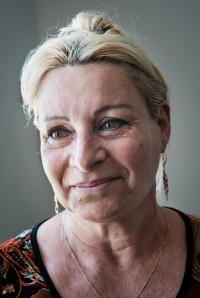If Cuba is free, we will return to build this society

Download image
Maritza Lugo was born in 1963 in a humble family in Havana. During her youth she had frequent conflicts with the authorities, she opposed the injustice that had to be faced in the educational institutions of a totalitarian country. Because of this, she was prevented from continuing her studies at the university and could not practice her favorite sports either. She married the dissident Rafael Ibarra Roque, with whom she began to get involved in the activities of the Cuban opposition, and in reporting the violations of the Human Rights in Cuba. After the imprisonment of her husband, she became the leader of the Democratic Party November 30. She was under the permanent surveillance of the organs of State Security because of her activities, which focused mainly on the promotion of the ideals of freedom and democracy, and on the support of political prisoners. Accused of crimes of dangerousness and bribing a guard, she was sentenced to five years in prison. A part of the sentence was served at home thanks to international pressure. She suffered violations of her rights and became one of the planted prisoners, thus prisoners who opposed to any cooperation with the regime. To protest against the practices of the authorities she fought with hunger strikes. During her imprisonment she witnessed mistreatment of prisoners. She left the prison in 1999. She was exiled to the United States in 2002, where she collaborated with the organization “Los Plantados” (The Planted Prisoners) of Ángel de Fana.
